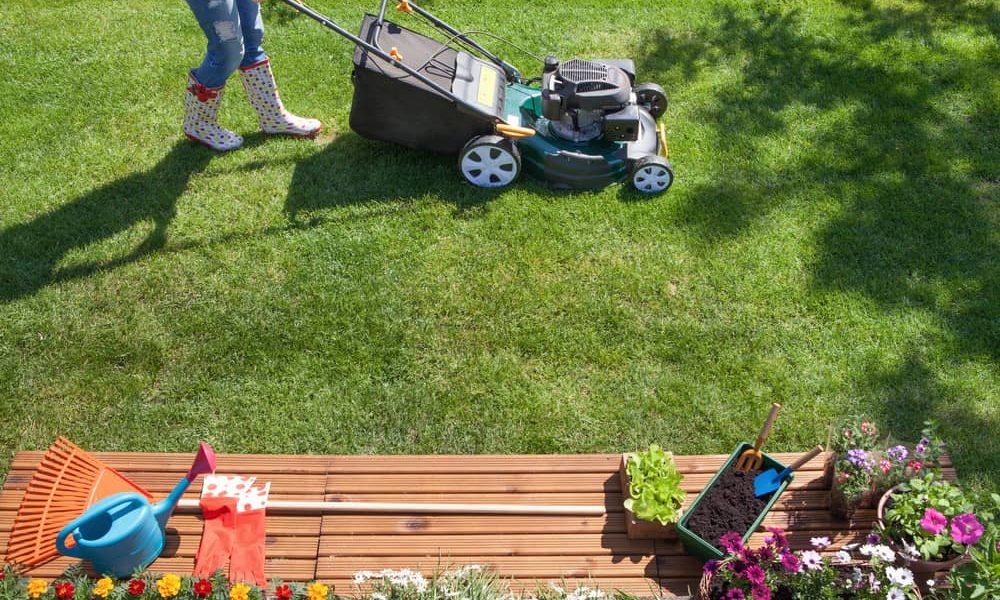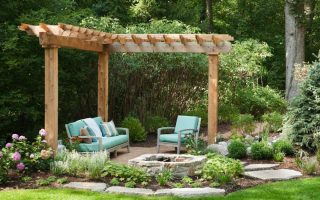Written by Nyla Rose, Founder of Homformation.co.uk
With over 12 years of hands-on experience in UK home renovation and garden design
As someone who’s spent over a decade helping homeowners transform their outdoor spaces, I know firsthand how exhausting weekends can become when yard work piles up. I’ve stood in more than one garden with clients who feel overwhelmed—grass knee-high, flower beds overtaken by weeds, and no clear plan in sight. But I’ve also seen how a few practical changes can save hours each week while still keeping your yard looking polished and peaceful.
Here’s how I help clients—and manage my own space—without losing my weekends.
Fast Mowing Starts with the Right Gear
Mowing used to be my most dreaded weekend task, especially with the old petrol mower I inherited when I bought my first home. It took forever to start, smelled awful, and always seemed to need repairs. That all changed when I finally switched to an electric mower.
Electric models, start with the push of a button and don’t require fuel or oil. They’re also much quieter—ideal if you’re trying to sneak in a mow early Saturday morning without waking the neighbourhood. And with UK homeowners averaging around 2 hours per week on gardening according to Cladco’s 2023 report, even cutting that time in half is a big win.
My Rule: Handle the Small Stuff Midweek
One of the golden rules I give clients? Never let the little jobs wait until the weekend. A ten-minute tidy on a Wednesday evening—pulling weeds, sweeping leaves, or trimming back a few plants—makes the Saturday workload shrink dramatically.
I’ve made it a habit to do a quick lap around the garden while my coffee brews in the morning. It’s surprising how much you can get done in five minutes, and how much mess you avoid later.
Invest in Tools That Make the Job Easier
In my landscaping consultations, I often find homeowners struggling with outdated or oversized tools. A client once spent 45 minutes raking a small lawn until we swapped in a cordless leaf blower. The difference? Five minutes and zero back pain.
Modern tools are lighter, safer, and often battery-powered. The added bonus? They’re usually quieter and easier for older adults or teens to use without help. I always recommend tools that fit the space, not just the budget.
For water management, I often refer clients to the NIDirect guide on garden water-saving methods—tips like watering early or installing rainwater collectors save both time and utility costs.
Break It Down into Manageable Chunks
The mistake I made early in my career (and saw clients repeat often) was saving everything for Saturday. Mowing, edging, watering, and pruning all in one go? It’s overwhelming and usually leads to burnout—or shortcuts.
Instead, I help families create micro-schedules. For example:
- Friday after dinner: Mow front yard
- Saturday morning: Trim hedges and check sprinkler system
- Sunday afternoon: Tidy up patio and sweep walkways
Breaking it up this way keeps things light and flexible—perfect for busy families or anyone who values their free time.
Design Your Yard to Work for You
During my training at the London College of Interior Design, we studied how landscaping can either increase or decrease workload based on layout. I always recommend edging around beds, planting low-maintenance shrubs, and avoiding aggressive growers unless you’re ready to tame them weekly.
The RHS guide on low-maintenance gardens suggests simple choices—like letting grass grow a bit longer or using perennial ground covers—that can drastically reduce effort over time.
One of my clients swapped out a traditional border garden for raised planters with bark mulch. The result? It looked just as beautiful, needed less weeding, and stayed tidy with almost no extra work.
Don’t Go It Alone—Team Up or Get Help
Yard work doesn’t need to be a solo mission. I’ve helped couples divide tasks—one mowing, the other trimming—so it becomes a shared routine, not a burden. Even young kids can help by picking up sticks or watering potted plants.
For clients with demanding jobs or mobility challenges, outsourcing is often the smartest move. I regularly refer families to professional services like this one for seasonal cleanups or ongoing maintenance. It’s not lazy—it’s efficient.
Turn Yardwork Into a Routine
If you wait until things get wild, the job always feels bigger. That’s why I teach clients to treat yard care like any other routine chore. A quick weekly check-in—snip a few dead leaves, tidy a border, refresh a potted plant—keeps the workload down.
Think of it like brushing your teeth: easier to do regularly than fix a big problem later.
Don’t Wait for the “Perfect” Day
Here’s something I say a lot: “Perfect weather is overrated.” If you only tackle the garden when the temperature is ideal and the sky is clear, you’ll fall behind fast. I often water my plants or sweep paths on overcast evenings. It’s not glamorous, but it gets the job done.
Planning jobs around comfort (early mornings, shady afternoons) and using tools that are fast and ergonomic makes a big difference. Plus, following tips like those in the NIDirect article on saving water helps you avoid overwatering and conserve time.
Make the Yard a Place You Love to Be
I always tell clients: your yard should feel like a retreat, not a checklist. When it’s clean, functional, and cared for, it becomes an extension of your home. Whether you host BBQs, enjoy a morning coffee outside, or watch your kids play, a tidy yard makes everything feel better.
One client turned a cluttered corner into a mini seating nook with fairy lights and low-maintenance plants. She told me it’s now her favourite weekend hangout—and she barely remembers it ever being a chore to maintain.
Wrap-Up: Smart Choices, More Weekend
The reality is simple: with the right tools, better planning, and a few weekly habits, anyone can keep their yard in shape without sacrificing their weekend. I’ve helped dozens of families find this balance, and it starts with one change at a time.
Focus on what matters. Use smarter gear. Make maintenance part of the rhythm of your week—and free up your weekends for what really counts: enjoying your space, not slaving over it.




